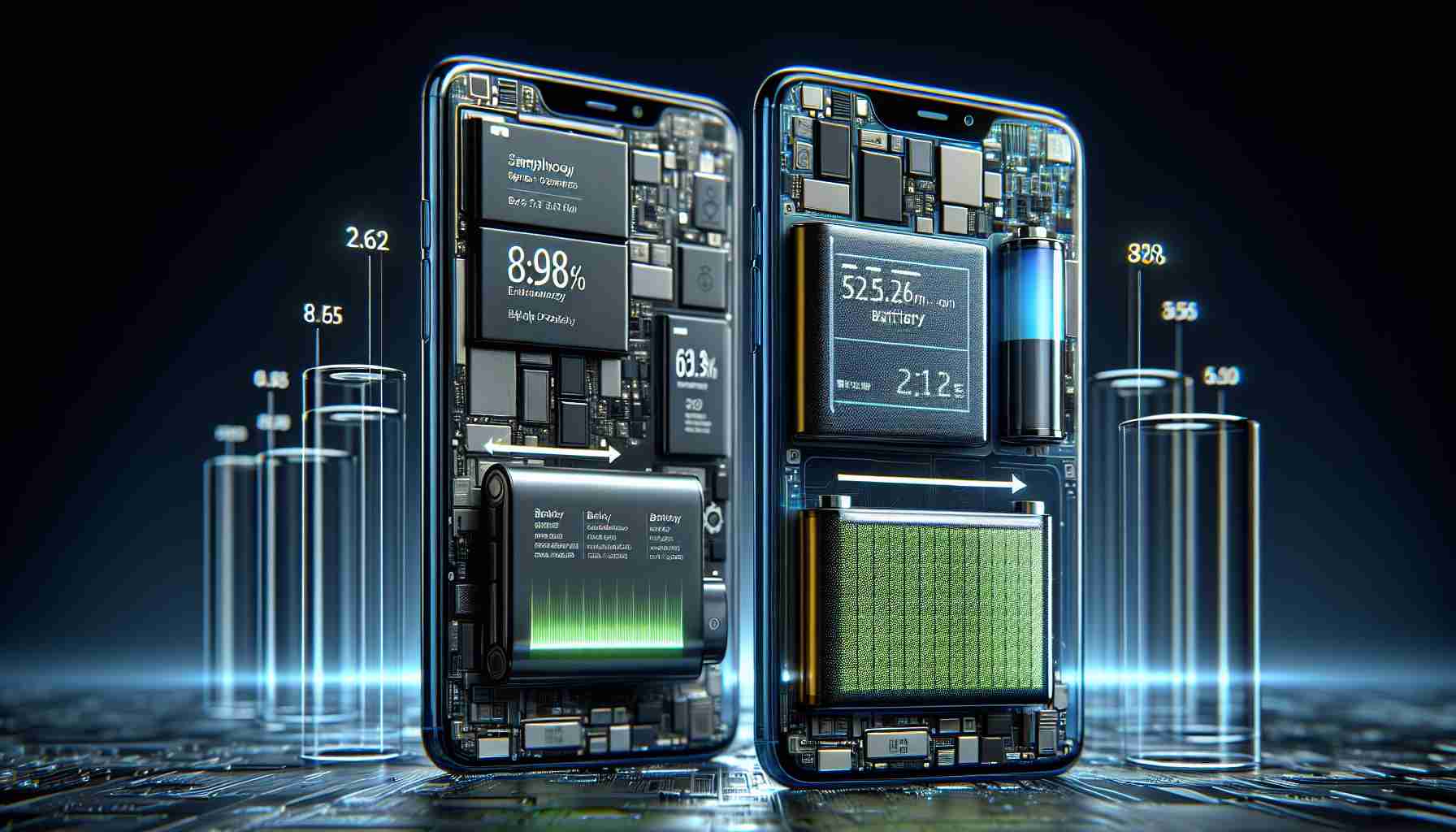Smartphone manufacturers are constantly striving to meet the growing demands of consumers who seek faster charging and longer-lasting batteries. At the Mobile World Congress (MWC) in Barcelona, telecom firms showcased their progress in developing more potent batteries. Forrester Research analyst Thomas Husson believes that battery performance is an area that needs improvement.
While wireless charging has been introduced along with other advancements, there is still room for innovation. As power-hungry apps like gaming and social media become more popular, the demand for high-capacity batteries rises. Manufacturers are exploring alternatives to the conventional lithium-ion batteries, such as lithium sulphur or graphene, which promise extended lifespans and utilize less rare materials.
One example of significant progress is Chinese handset maker Honor’s AI-infused flagship Magic 6 smartphone. Equipped with higher capacity battery technology that incorporates silicon-carbon, this smartphone can fully charge in under 40 minutes and outlast its competitors. In fact, it ranks first in the battery performance category according to DXOMARK.
Samsung and Apple, two tech giants, are also investing resources in battery advancements. Samsung aims to launch a solid-state battery in 2027, offering increased energy storage, faster charging, and enhanced safety. Apple, which recently surpassed Samsung as the world’s leading smartphone seller, is reportedly developing its own battery technology and may introduce it in mobile devices by 2025.
Interestingly, some companies are even venturing into more unconventional territories. Chinese startup Betavolt Technology has introduced a nuclear battery that claims to power a smartphone for an astounding 50 years without recharging. This groundbreaking technology miniaturizes atomic energy by using nickel-63 isotopes in a coin-sized module. Although not showcased at the MWC, Betavolt Technology has already commenced pilot testing for mass production.
The pursuit of better batteries is not only driven by consumer demand but also legislative requirements. The European Union parliament has mandated minimum levels of recycled content and improved durability for batteries. This push towards sustainability is further increasing investment in battery technology.
While these advancements are exciting, industry experts like Ben Wood caution that we are still years away from a breakthrough that truly revolutionizes mobile phones. However, with continued research and development, the dream of smartphones with two-week battery life may become a reality. Till then, consumers can take solace in the fact that technological progress is constantly bringing us closer to a future where charging woes are a thing of the past.
Frequently Asked Questions (FAQs): Smartphone Battery Advancements
Q1: What are smartphone manufacturers striving to improve?
A1: Smartphone manufacturers are constantly striving to meet the growing demands of consumers who seek faster charging and longer-lasting batteries.
Q2: What was showcased at the Mobile World Congress (MWC) in Barcelona?
A2: At the MWC, telecom firms showcased their progress in developing more potent batteries.
Q3: What is an area that needs improvement in battery performance?
A3: Battery performance is an area that needs improvement, according to Forrester Research analyst Thomas Husson.
Q4: What are manufacturers exploring as alternatives to conventional lithium-ion batteries?
A4: Manufacturers are exploring alternatives such as lithium sulphur or graphene batteries that promise extended lifespans and utilize less rare materials.
Q5: Can you give an example of significant progress in battery technology?
A5: One example is Honor’s AI-infused flagship Magic 6 smartphone, which incorporates higher capacity battery technology that can fully charge in under 40 minutes and outlast its competitors.
Q6: Which tech giants are investing in battery advancements?
A6: Samsung and Apple are investing resources in battery advancements. Samsung aims to launch a solid-state battery in 2027, while Apple is reportedly developing its own battery technology to introduce in mobile devices by 2025.
Q7: Are there any unconventional battery advancements?
A7: Yes, Chinese startup Betavolt Technology has introduced a nuclear battery that claims to power a smartphone for 50 years without recharging by using nickel-63 isotopes in a coin-sized module.
Q8: What drives the pursuit of better batteries?
A8: The pursuit of better batteries is driven by consumer demand and legislative requirements. The European Union parliament has mandated minimum levels of recycled content and improved durability for batteries, leading to increased investment in battery technology.
Q9: Are we close to a breakthrough that revolutionizes mobile phones?
A9: Industry experts like Ben Wood caution that we are still years away from a breakthrough that truly revolutionizes mobile phones.
Q10: Is there hope for longer battery life in the future?
A10: Yes, with continued research and development, the dream of smartphones with two-week battery life may become a reality in the future.
Definitions:
– Lithium-ion batteries: A type of rechargeable battery commonly used in electronic devices that utilize lithium ions to store and release energy.
– Silicon-carbon: A higher capacity battery technology that incorporates silicon and carbon, providing improved performance and charging capabilities.
– Solid-state battery: A type of battery technology that replaces the liquid or gel electrolyte used in traditional batteries with a solid material, offering increased energy storage and safety.
– Nuclear battery: A battery that uses nuclear energy as a power source, often through the use of isotopes such as nickel-63.
Suggested Related Links:
– Samsung – Sustainable Future
– Apple – Environment
– Betavolt Technology
